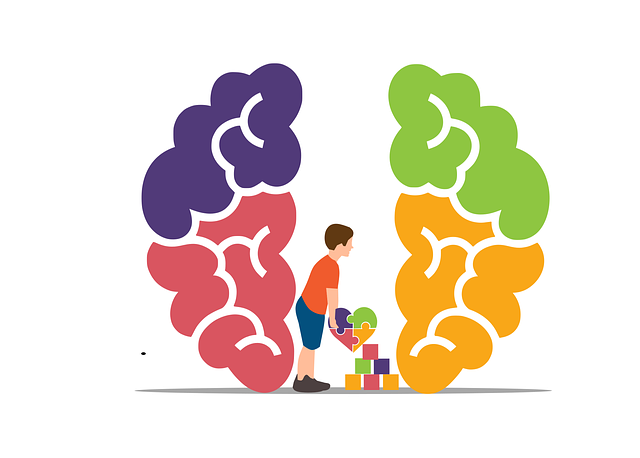Burnout among healthcare providers is a growing concern due to increasing work demands and pressures, leading to emotional exhaustion, depersonalization, and reduced personal accomplishment. To combat this, therapy for adults incorporating mindfulness practices has emerged as an effective tool in burnout prevention. Mindfulness-based interventions enhance self-awareness, stress management, and emotional resilience, while robust mental health risk management planning fosters supportive work environments. Implementing these strategies mitigates burnout risks, improves job satisfaction, reduces mental health issues like anxiety and depression, and ultimately leads to better patient care and well-being.
Healthcare provider burnout is a growing concern, impacting both professional satisfaction and patient care. This article explores effective strategies to prevent burnout among healthcare workers. We delve into the root causes, focusing on the rising need for mindfulness and adult therapy as powerful tools. By understanding burnout dynamics, we uncover practical ways to foster resilience and well-being, emphasizing the importance of self-care and work-life balance in mitigating this issue. Discover how these strategies can revolutionize healthcare delivery.
- Understanding Burnout Among Healthcare Providers
- Mindfulness and Adult Therapy: A Powerful Duo for Burnout Prevention
- Practical Strategies to Foster Resiliency and Well-being
Understanding Burnout Among Healthcare Providers

Burnout among healthcare providers is a growing concern, as the demands and pressures on these essential workers continue to rise. It’s crucial to understand that burnout isn’t simply fatigue; it’s a state of emotional exhaustion, depersonalization, and reduced personal accomplishment, often stemming from prolonged exposure to stressful work environments. This phenomenon can have severe consequences not just for individual providers but also for patient care and the overall healthcare system.
Therapy for adults, particularly that which incorporates mindfulness practices, emerges as a powerful tool in burnout prevention. Mindfulness-based interventions help healthcare professionals cultivate self-awareness, manage stress, and maintain emotional resilience. Additionally, effective risk management planning for mental health professionals is essential to create supportive work environments, ensuring the well-being of these vital workers. Implementing these strategies can mitigate burnout risks, enhance job satisfaction, and ultimately improve patient outcomes.
Mindfulness and Adult Therapy: A Powerful Duo for Burnout Prevention

In today’s demanding healthcare landscape, burnout among providers is a growing concern. Mindfulness and adult therapy emerge as a powerful duo to combat this issue. Mindfulness practices, rooted in ancient traditions, have been scientifically proven to reduce stress, enhance focus, and improve emotional regulation—all essential elements for maintaining resilience against burnout.
Adult therapy, with its emphasis on self-awareness, coping mechanisms, and personal growth, complements mindfulness by providing a safe space for healthcare providers to process their experiences, develop effective communication strategies (a key aspect of healthcare provider cultural competency training), and address underlying mental health concerns. By integrating these practices into their routines, providers can mitigate the effects of stress, reduce symptoms of anxiety and depression, and foster an environment conducive to stigma reduction efforts for mental illness—ultimately paving the way for improved patient care and well-being.
Practical Strategies to Foster Resiliency and Well-being

In the ongoing quest to combat healthcare provider burnout, fostering resilience and well-being is a strategic priority. Practical strategies such as therapy for adults, incorporating mindfulness techniques, and engaging in emotional healing processes play a pivotal role in this effort. By encouraging professionals to prioritize self-care, organizations can create a culture that values and supports mental health. Mindfulness practices, for instance, have been shown to reduce stress levels and enhance coping mechanisms, making them valuable tools in the burnout prevention arsenal.
Additionally, Trauma Support Services and Stress Management Workshops Organization within healthcare institutions contribute significantly to this initiative. These services provide specialized support, offering safe spaces for professionals to process and overcome traumatic experiences. Through structured programs focused on emotional healing, providers gain effective stress management skills, enabling them to navigate demanding work environments with greater resilience.
Healthcare provider burnout is a pressing issue, but with the right strategies, it can be prevented. By understanding the root causes of burnout and implementing practical resilience-building techniques, such as mindfulness and adult therapy, healthcare professionals can create a healthier work environment. Incorporating these strategies into daily routines fosters well-being and ensures healthcare providers can continue to deliver quality care.














